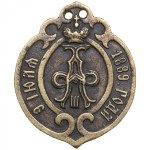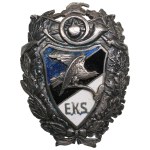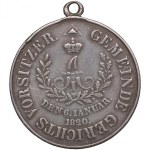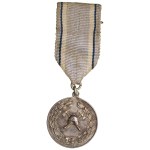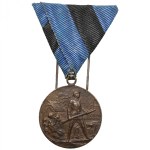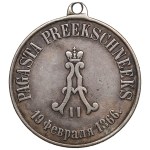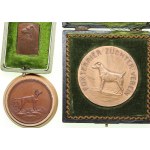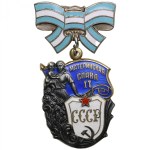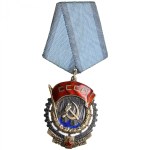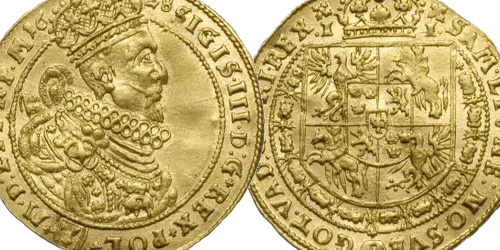Russia (Livland, Estland, and Courland Governorates) Brass Official Badge 1889 (1904-1917) - Commissar for Peasant Affairs
Badge 120.54g. 62mm. Chain 334.32g.
Type 1904.
Melnik, Mozheiko 6010 (for Poland). Very rare.
Commissar for Peasant Affairs. A position within the Ministry of Internal Affairs in the Livland, Estland, and Courland Governorates of the Russian Empire. It was established by the Regulation on the Reorganization of Peasant Administrative Institutions in the Baltic Governorates of 9 July 1889. According to the Schedule of the Number of Commissars for Peasant Affairs in the Livland, Estland, and Courland Governorates of the same date, each county (uyezd) of these provinces had one or two commissars. Under this regulation, the Commissars for Peasant Affairs were charged with supervising the organs of peasant self-government and ensuring the correct application of laws concerning the land tenure of Baltic peasants. They approved land lease agreements between peasants and landlords, verified the legality of land purchase and sale contracts concluded by peasants, and conducted preliminary investigations in cases of unlawful appropriation of peasant lands by landowners or the transfer of taxable lands into tax-exempt categories. They also confirmed new land surveying documents in the Livland Governorate and authorized the convening of joint assemblies of elected representatives (when several rural communities belonged to one judicial district), among other duties. According to the Rules on the Provincial Boards for Peasant Affairs in the Baltic Governorates of 17 April 1893, the commissars for peasant affairs were invited to participate in these boards when matters concerning their respective districts were discussed (they had an advisory vote). They submitted motions — either at the governor’s request or on their own initiative — for the removal from office of elected officials of the volost administrations and for bringing them to trial. They also verified and approved the resolutions of general volost assemblies concerning the expulsion of disreputable members, and confirmed the voluntary nature of land exchange transactions between landlords and peasants. By the decision of the State Council, approved by His Imperial Majesty Nicholas II on 14 November 1903, one commissar for peasant affairs became a member of the Commission for the Administration of the Ösel (Saaremaa) Peasant Bank. The Commissar for Peasant Affairs was an appointed official. According to the regulation of 9 July 1889, the post was classified under Class VII of the Table of Ranks (corresponding to the rank of Nadvorny Sovetnik, or Court Councillor). By a later opinion of the State Council, approved by Emperor Nicholas II on 26 May 1903, the position was upgraded to Class VI (Kollezhskiy Sovetnik, or Collegiate Councillor). The office was abolished by the decrees of the Provisional Government “On the Temporary Organization of Administrative Governance and Local Self-Government” in the Estland Governorate and in the Livland and Courland Governorates, issued respectively on 30 March 1917 and 22 June 1917. Issue historically associated with present-day Estonia and Latvia.






